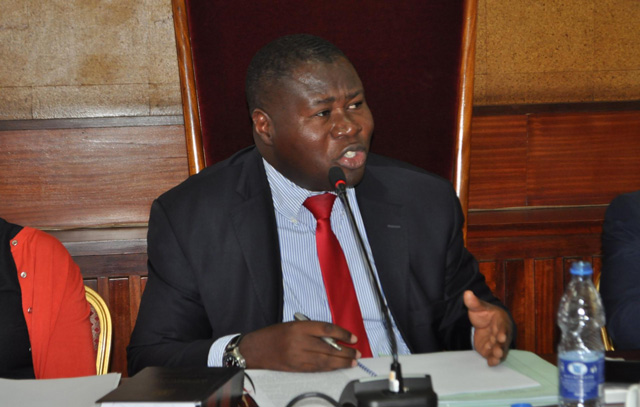
Kampala, Uganda | THE INDEPENDENT | The Legal and Parliamentary Affairs Committee has rejected an opposition proposal to make all ministers ex-officio Members of Parliament on grounds that it infringes on Article 93 of the Constitution and imposes a charge on the Consolidated Fund.
This is part of the committee recommendations on the Constitutional (Amendment) Bill, 2019 presented by the Shadow Attorney General, Wilfred Niwagaba. The report is one of the items pending presentation and debate by Parliament.
In his bill, Niwagaba proposed that the Vice President, Ministers, Attorney General and Deputy Attorney General be made ex-officio MPs without voting rights on any issue on the floor of Parliament. Article 78 of the Constitution provides for the membership of Parliament including legislators, Ministers and the Vice President, who if not already MPs shall be ex-officio member without voting rights.
However, Niwagaba’s proposal meant that the Vice President, Ministers, Attorney General and Deputy Attorney General shouldn’t be selected from elected MPs. And that once appointed by the president, they should be ex-officio members of parliament. There are currently 81 ministers (31 full cabinet ministers), Ministers of State (49) and one Vice President out of which 11 are ex-officio Members of Parliament. This means that 70 cabinet members were appointed by the President from elected MPs.
According to the Committee, approving Niwagaba’s proposal would increase the membership of parliament by the same number of ministers who would be withdrawn. “The effect of the proposal in the Bill is increasing the Members of Parliament and it is contrary to Article 93 of the Constitution in so far as imposing a charge on the Consolidated Fund,” said the Legal and Parliamentary Affairs Committee chairperson, Jacob Oboth.
Article 93 of the Constitution bars parliament from proceeding with a Bill or motion that isn’t introduced on behalf of government if it imposes a charge on the Consolidated Fund, has effect on payment or withdrawal from any public fund or increases the amount of payment among others. According to the committee, having all members of Cabinet to be ex-officials will not only have the effect of increasing the membership of Parliament but also impose a charge on the Consolidated Fund in form of salaries, allowances and others benefits that accrue to a Member of Parliament.
“The matter of a Private Member’s Bill imposing a charge on the Consolidated Fund has been legislated upon in Constitutional Petition No. 2 of 2018: Male Mabirizi Kiwanuka and Uganda Law Society Versus Attorney General wherein Bart Katureebe, Chief Justice at page 36 is emphatic that any amendment to a Bill that is proposed must be examined as to whether it complies with the requirements of the Constitution. If the provisions proposed in the amendment contain or make provision for a charge on the Consolidated Fund, other than by reduction, then it is barred by Article 93 of the Constitution and Parliament must not proceed with it. If Parliament proceeds with it and passes it, it is passing a nullity. Parliament might as well reject it right at the beginning,” reads the committee report.
*****
URN
 The Independent Uganda: You get the Truth we Pay the Price
The Independent Uganda: You get the Truth we Pay the Price



